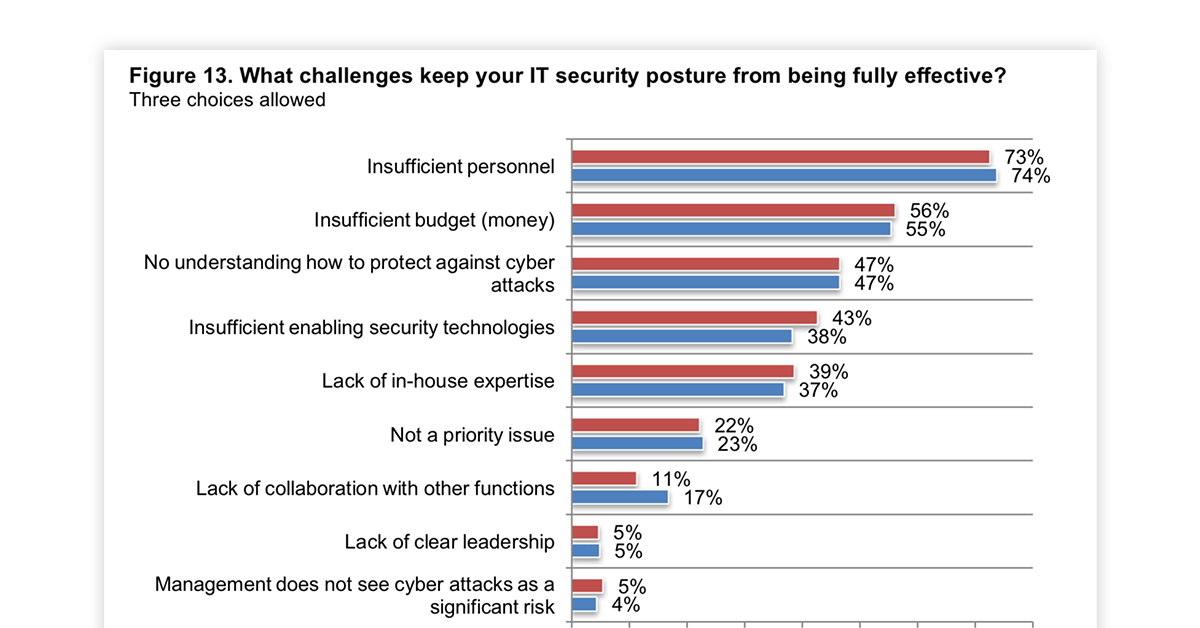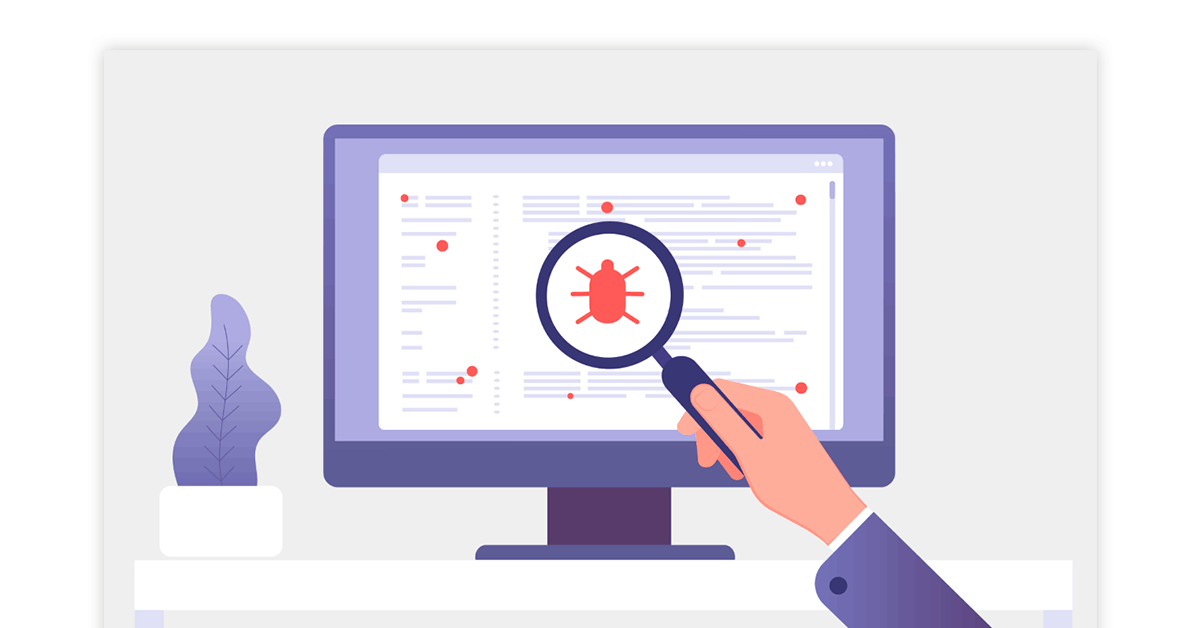A report by Kaspersky found that more than 35% small and medium enterprises in India became prey to data breaches in 2019.
Such a staggering statistic reflects that most of the SMEs today are achieving growth at the cost of security. Small business owners are often under the impression that hackers prefer the critical data of big enterprises over the others.
However, there is another data that suggests alarming answers about the impact of cyber risk on small businesses. 60% of the SMBs close within six months of reporting the first instance of being hacked.
With all this data pointing towards a cybersecurity catastrophe awaiting, there seems to be an increased awareness in the SMB camp regarding securing their systems.
If you are still lagging in terms of cyber security measures, let’s analyse some of the loopholes in your existing process.
Why Your SMB is an Ideal Target for Hackers

- Small businesses don’t have appropriate cybersecurity policies
Globally more than 40% cyberattacks are aimed at small and medium enterprises, as per Accenture’s report.
This is because they don’t have adequate budget and resources to implement and manage security of their networks. SMBs do not have the backing of a dedicated team of cyber security experts to detect and prevent impending risks.
- SMEs often use cracked or pirated version of software
Microsoft withdrew all support and updates to Windows 7 as the OS was being increasingly pirated. As per a recent Kaspersky report, 41% users still use the unsupported version of the Windows operating system.
This fact makes SMEs an easy target for hackers as they miss out on crucial security updates associated with original software.
- Intellectual property (IP) theft of start-up business ideas
In recent times, there has been an increase in the rise of intellectual property theft. This is particularly critical for newly founded start-ups as all they have is the idea on which the company has been built. If that is stolen, the company will crumble.

In India, the enforcement of laws preventing the violation of intellectual property has improved marginally since 2015.
Suggested Read: Top 12 Managed Security Service Providers (MSSP) in India
It’s Time to Change Your Response to Hacking Threat
In a recent survey on cybersecurity and SMBs conducted by Keeper’s security, it was found that a staggering number of 43% business owners believed they wouldn’t face a cyberattack ever.
Zomato may have had the same opinion until 2017 when its system was hacked and data of 17 million customers compromised. Reports suggested that the data was available on the dark web to be sold to the highest bidder.
By this point, you might have caught on to the fact that SMBs are not at all safe from cyber threats and need urgent upgrades to resolve vulnerabilities existing in the system.
The economic crisis and fund crunch emerging out of the COVID-19 pandemic has further made things difficult for small businesses, as they don’t have their own team of cyber security experts.
Further, as employees work from home on their own systems, they handle critical data without presence of company specific security tools.

In such a scenario, the only feasible solution is that small and medium scale organisations have a know-how of all vulnerabilities posing a risk to their system. This is possible through VAPT.
What is VAPT
VAPT stands for Vulnerability Assessment and Penetration Testing (VAPT) and is a cybersecurity testing tool which identifies different risks to your system architecture and suggests corrective steps required to mitigate these risks.
VAPT consists of two parts: Vulnerable Assessment (VA) and Penetration Testing (PT). VA finds out all the general gaps in your network and suggests the ways to mitigate risks. On the flip side, PT focuses on those vulnerabilities which are likely to be exploited by hackers.
Why VAPT Should be the Top Priority for SMEs
In the survey conducted by Keeper’s Security, it was found that 1 in 4 businesses were not clear about how to implement a cybersecurity policy. For such organisations, implementing VAPT can be useful to understand gaps in their security and adopt the rectifying measures.
Below we list some reasons as to why VAPT should be the top priority for small and medium enterprises.
VAPT Goes Beyond Firewall and Antivirus Solution
Small businesses rely solely on firewall and antivirus solutions for their system security needs. This is not enough as cyberthreats evolve continuously and come in more dangerous forms such as malware, ransomware, phishing attack, etc.

Moreover, hackers have multiple entry points to manipulate critical data which are not covered by antivirus and firewall. VAPT is useful for identifying those entry points and obtaining measures to close them as soon as possible.
VAPT Streamlines Security Budget of SMEs
Kaspersky estimated that around 45% SMBs allocate lower than average budgets for cybersecurity. A major reason for this is the lack of monetary resources.
VAPT helps such businesses detect vulnerabilities which can compromise their systems. The organisation would then have a clear idea about the critical threats they need to counter firstanddesign their IT security budget accordingly.
VAPT Helps Maintain Customer Trust
According to a report, a healthy percentage of customers around 60% believes that their personal data can be hacked. Such distrust in the minds of potential investors and new clients is not healthy for the growth of small businesses.
VAPT can effectively counter this by providing a detailed analysis of pain points which can impact not only your data but also your client’s data.
In one such instant, VAPT of an educational ERP tool showed that its servers were especially susceptible to DDoS attacks. Changes were then made to correctly configure those servers.
Cyberattacks: A Concern Too Big for Small Businesses to Ignore

Cyberattacks impact SMBs in a more severe manner as compared to large organisations. Even in adverse hacking cases, investors and influential clients of large enterprises can bail them out.
In 2011, Sony PlayStation network suffered one of the biggest security breaches in history, compromising data of more than 75 million users. At the end of it, Sony walked away easily by issuing a security patch and some free games as remittance.
SmallBizDaily.com was not so lucky. The site was dedicated to publishing well researched articles for small businesses. It was hacked one day, and months of published posts were lost, never to be recovered again.
Conclusion
SMBs believing that they won’t be hacked ever and therefore don’t need a cybersecurity policy can’t be farther away from the truth. Unlike large corporations, small businesses find it really tough to survive the aftermath of a data breach.
This is where VAPT is useful for SMBs running tight on budgets. It points out gap in network security that can be exploited by hackers and suggests counter-intuitive measures. It is also the best tool for building trust among clients and investors.
Mayank Dixit is a talented content writer with an enriching educational background with Bachelor's degree in Engineering and a Master's degree in Mass Communication. With this combination of technical and creative skills, Mayank is well-equipped to produce engaging content that is informative too. He is passionate about business... Read more









